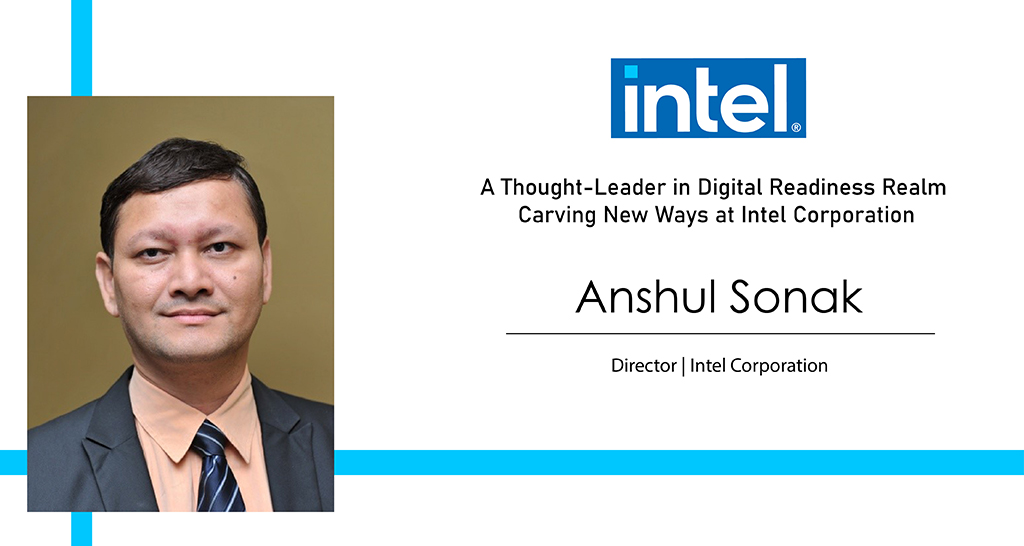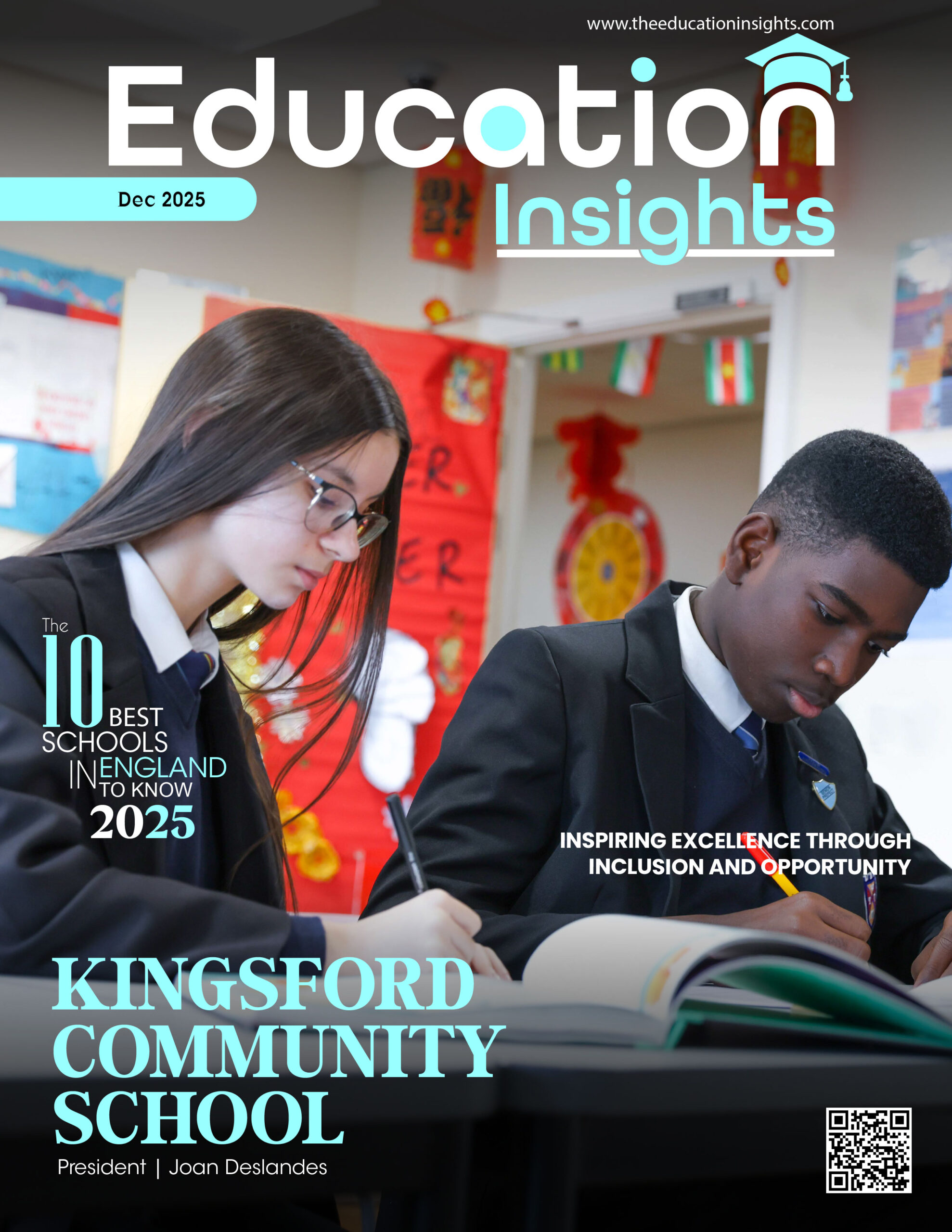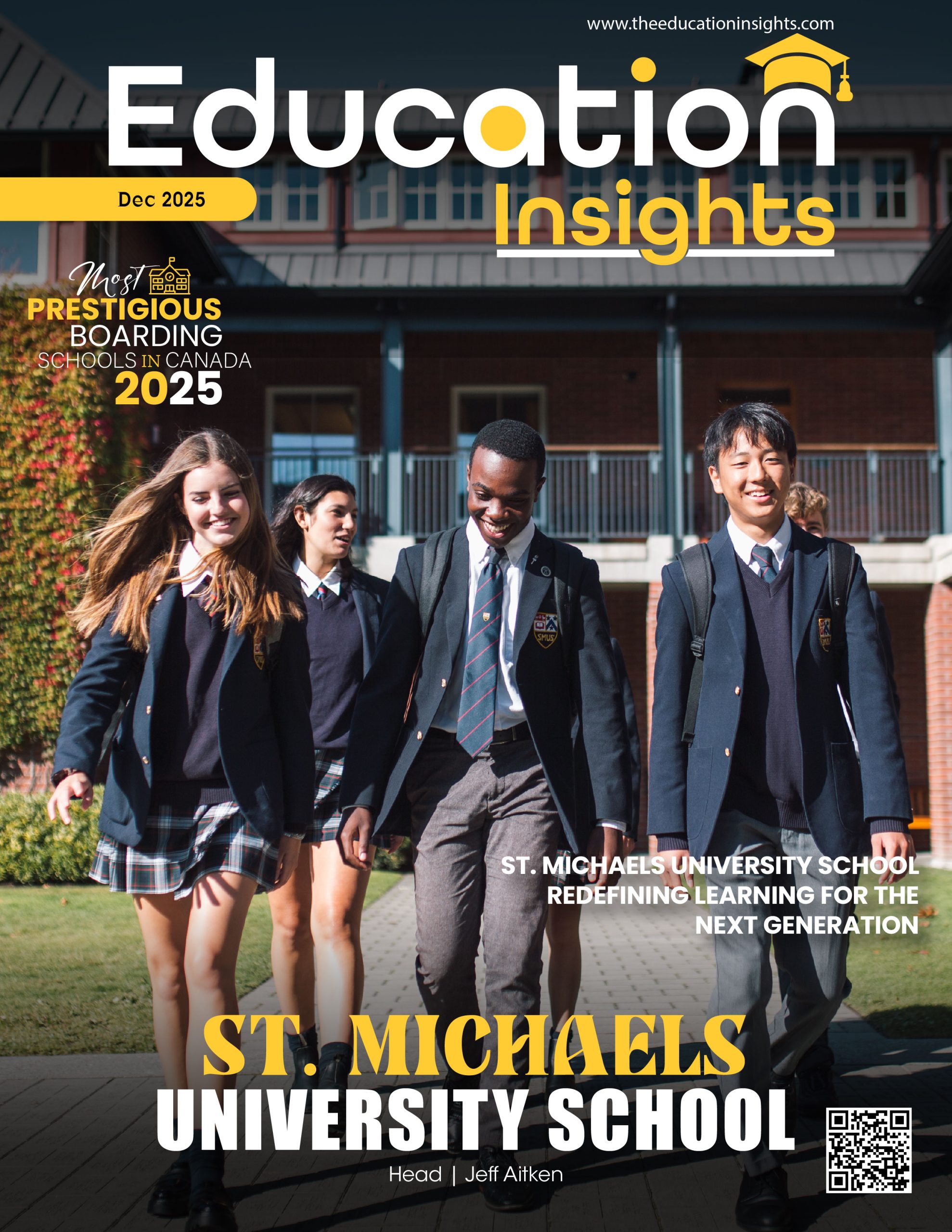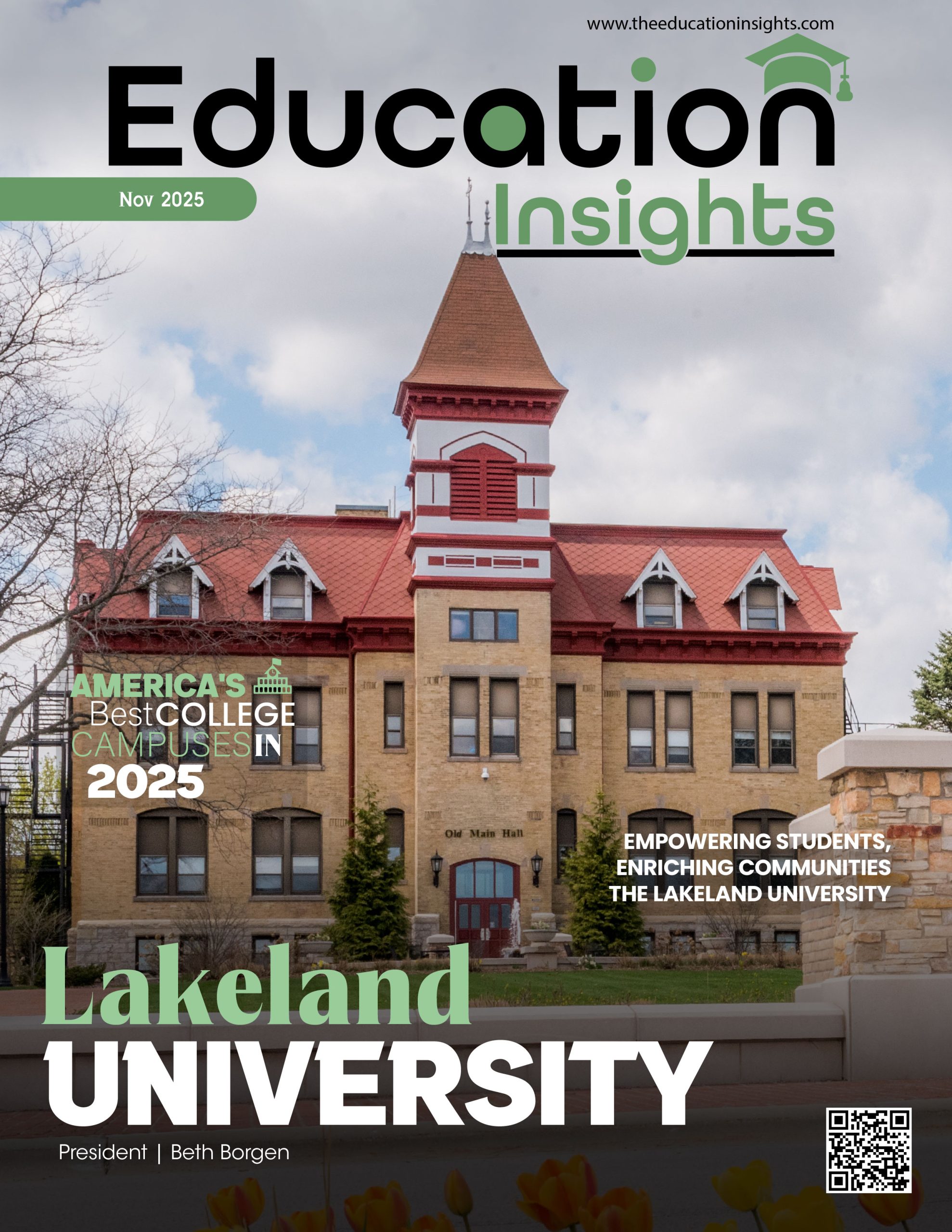Most of the significant things in the world would have been accomplished by people who had kept on trying when there seemed to be no hope at all. They own a positive attitude and a resolve to achieve their dreams and are the ones who bring an inevitable change in their surroundings. Here we are narrating the successful journeys of such inspiring and dynamic business leader – Anshul Sonak, Principal Engineer and Global Director for Intel Digital Readiness Programs & Strategy at Intel Corporation.
He is a visionary business executive, who oversees the global digital readiness program’s execution and prepares the workforce of the future with regard to emerging technology with the mission to make technology inclusive and expand digital readiness for all. He is also responsible for demystifying and democratizing tech skills like Artificial Intelligence with larger-scale public-private partnerships with governments, academia, and civil society organizations globally.
Over his 28 years of professional experience in the education and technological skills sector, Anshul has played multiple senior management and leadership roles like leading ed-tech companies, new business and product creations for societal impact, technology policy and sustainability/citizenship, sales and marketing, and government & public affairs.
He has served as a mentor for numerous governments, business associations, start-ups, multi-laterals, and social impact organisations on how to use technology for development. He is also a frequent speaker at international skills forums like those held by the UNDP, UNESCO, and Oxford University on topics like the future of work, lifelong learning, and digital transformation.
Anshul Sonak is UNDP Asia’s first private-sector regional Youth Co-Lab champion encouraging young tech entrepreneurship. In a new book “Mastering the power of you,” , written by Oxford Professors, he wrote a chapter titled “Mastering the power of creative thinking.”
Intel’s Work Environment – A Combination of Creativity and Innovation
In Intel’s sphere of employability and workforce development, creativity and innovation play a critical role as the result, i.e. actual employment and economic progress is a function of what can learners do innovatively with their learning. It is not about what or where they learn. Emerging technologies like AI when used responsibly, creatively, and innovatively, can foster a better human-machine partnership for shared value i.e., mutual growth for societies and businesses.
“Both in our work environment and in programmes, we foster this spirit of lifelong learning and help to build a new paradigm of “work to learn” where everyone can build power skills like learnability, sociability, and variability continuously and have equal access and opportunities; instead of the older notion of “learn-to-work” where learning used to stop with just formal education”, asserted Anshul.
Human-Machine collaboration and emerging new competence and lifelong learning are key to a healthy future of work for all. Taking ownership to solve big problems related to SDGs with new tech skills like Generative AI and social skills like AI biases understanding is critical for healthy work and societal progress.
Overcoming the Hurdles with Innovative Solutions
The way we learn, play, work, and live has changed a lot with the evolution of the latest technological superpowers like AI. Increased digitalization of everything in the lives requires investment in the digital readiness of all people, especially in emerging technologies like Artificial Intelligence, for society and countries to remain competitive in the global economy. Digital Readiness encompasses skills, trust, and responsible use of tech superpowers like AI for broader socio-economic benefits for all people. Closing the digital skills gap can add $11.5 trillion to the GDP of G20 countries by 2028, as per Accenture. Addressing the AI-related tech and social skills gap has become a critical industry and policy agenda since jobs across all sectors increasingly embrace AI.
“At Intel, we have rolled out the Intel® Digital Readiness Program to demystify and democratize technology for broader diverse and non-technical audiences, irrespective of their location, gender, and ethnicity”, quoted the leading man.
Milestones and Accomplishments Along the Way
It gives great satisfaction to see the impact of the program implementation i.e., how AI is becoming more accessible, inclusive, and diverse people can use AI responsibly in their own lives. Recently, Intel hosted a 15-year-old boy from rural India, who was the winner of the global AI innovation competition in Intel program ‘AI Global Impact Festival’. He had successfully developed an AI model to remove the English language as a barrier to coding so that anyone can code in any local language easily. The student innovators like him will be driving society forward.
Our scalable and trusted public-private partnerships with multiple government bodies move forward through digital employability agenda. “In the US for example, the American Association of Community Colleges has worked with us to bring AI Associate Degrees to Community Colleges. Our program ‘AI for Workforce’ is now getting implemented in 81 colleges across 36 states for industry workforce transformation. I am proud of all the government and academia partners who trust us and invest their time and resources for scaling and sustaining the impact to make a wider workforce digitally ready”, the magnificent man proudly shared.
Intel’s Future: Staying Ahead in the Market
A huge number of people are looking for instant skilling, reskilling, and upskilling opportunity for the new world where everything is becoming digital, and technology has become an integral part of their day-to-day lives. Anshul Sonak looks forward to playing a significant role both personally and professionally in their journey of digital readiness for their exciting growth, prosperity, and positive future.
Their vision is to partner with 30 country governments and 30,000 institutions worldwide to empower more than 30 million people with AI skills for current and future jobs by 2030. The team has already partnered with 27 country governments with more than 50 public-private partnerships, enabled 23000 institutions, and trained more than 4 million people as of 2022.
Before signing off, the visionary shared, “I would like to be remembered as a path breaker and a catalyst who created multiple new public-private partnership programs to make technology more inclusive and built an AI-ready generation of student innovators and workforce around the world.”










